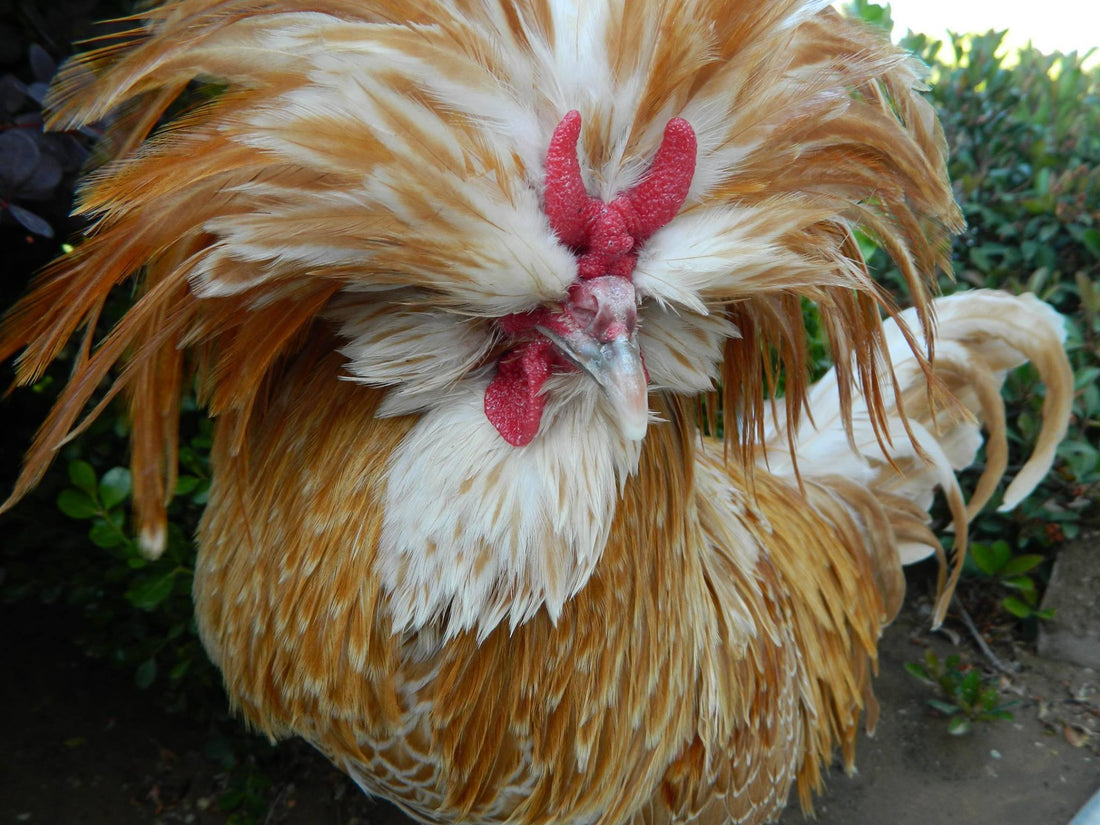
Desert-Friendly Chicken Breeds: Raising Chickens in Both Hot and Cold Climates
Annmarie Palazzola-HolbrookShare
Desert-Friendly Chicken Breeds that You can raise in the extreme climate of the desert

Picture This...
It's triple digits in the high desert today. In fact, for the next two-plus weeks, it will be HOT. You decided months ago that you wanted to raise chickens in your yard.
Suddenly, you notice that a couple of chickens aren't doing well.
"Raising chickens in this extreme climate has its fair share of challenges. When it's hot, it's HOT. And when it's 'Brrrrrr' freezing in the desert, you can't forget about them."
Your chickens need protection from extreme temperatures.

Did you know that chickens cannot sweat, which can cause them to overheat and succumb to high temperatures?
Signs of Heat Stress in Chickens
In minor cases, when it's hot, a chicken will pant and hold its wings slightly away from its body. This helps cool its body.
When a hen has extreme heat exhaustion, she will pant heavily and spread her wings away from her body. She may become lethargic, limp, or in the worst-case scenario, unconscious.
If you notice these symptoms in your chicken, they are in danger of dying from heat stress, and immediate action must be taken. You will want to cool off the chicken quickly.
The first thing you should do is submerge your chicken up to her neck in cool (not icy) water for up to 5 minutes. Take her out of the cool bath and place her in a cool area to recover completely. Feed consumption during a heatwave usually decreases. You can offer frozen watermelon. This will help hydrate and cool the chickens down.

Ways to Prevent Heat Stress in Your Chickens
When summer hits, temperatures can rise quickly. The best way to help your chickens stay cool is to provide them with ample shade.
- Place ice blocks in a small shallow pool for them to step into.
- Freeze water bottles or an empty jug to place out.
- Ensure they have ample shade from trees or natural landscaping and a well-ventilated and shaded coop, in the afternoon.
- Misters are a great way to cool things off. Misters can cool an area by as much as 20%.

Now that we have put preventative care into action, let's look at breeds of chickens that can thrive in extreme climates.
5 Chicken Breeds That Can Thrive in Extreme Climates

Leghorn
Leghorn chickens are known for their hardy egg-laying abilities. Lightweight with large combs helps them dissipate heat effectively. They have strong egg production throughout the year, laying up to 320 eggs annually.

Australorp
Australorps can withstand hot and cold climates. They are great egg layers and are considered a calm breed to handle. Their egg color is a rich brown. "I'm a brown egg eater, so this would be a chicken I would want in my backyard." They can lay up to 300 eggs annually.


Plymouth Rock
These chickens are also known as Barred Rock. They are hardy egg layers, producing up to 280 brown eggs annually. They are prized for their meat as well. They are what you would call a dual-purpose breed. Plymouth Rock chickens are highly adaptable birds that tolerate hot deserts and cold regions with fluctuating temperatures. One of the things I liked about owning this breed is that it would lay eggs throughout the year. VERY hardy egg layers. They have a docile personality. Win-win!

Rhode Island Red
These chickens are hardy, independent, and versatile birds. They are excellent egg-layers and love to forage. The Rhode Island Red chicken has a nice personality. They can lay up to 300 brown eggs annually. So if you're big on eating many eggs, these are the chickens for you.

Buff Orpington
The Orpington is a large gentle bird. I recommend this chicken around children because they are so friendly. Its dense feathers give it the ability to withstand cold and heat very well. They can lay up to 280 eggs annually.
Bonus: Refreshing and Hydrating Frozen Summer Treats for Hot Weather
Ingredients
- 1 cup of strawberries or blueberries
- 1/2 cup of peas or green beans
- 1 grated carrot
- 1 cup of plain yogurt (optional)
Instructions
- Wash and slice the fruits and vegetables into bite-sized pieces.
- Combine the fruit and vegetables. If you are using yogurt, mix it in well.
- Use silicone molds or ice cube trays to add the mixture.
- Add a little water to each compartment. This will help bring all the ingredients together when freezing.
- Place the trays in the freezer for 4-6 hours or overnight.
- Once the mixture is frozen, you can serve the pops to your chickens to keep them hydrated and cool. This is a refreshing treat that your chickens will LOVE during those hot summer days.
Recipe Treats for Cold Weather
Ingredients
- 1 cup of cooked oatmeal (follow stovetop instructions)
- 2 cups of water
- 1 grated carrot
- 1 finely chopped apple
- 1 tablespoon of blackstrap molasses (provides them with energy)
Instructions
- Prepare the vegetables by chopping them into small-sized pieces.
- Mix all ingredients with the warm (not hot) oatmeal in a bowl.
- Spoon the warm oatmeal and veggie bits into a small dish and place it into the coop for the chickens to enjoy. This is a great treat for cold weather and will keep your chickens nourished and warm.
NOTE: As with any food, sensory, or toy product, it's advised to consult with your veterinarian before starting a new diet or snack implementation for your pet. Some pets may have pre-existing health challenges.
Final Thoughts
When raising chickens in your backyard, choosing the right breed for extreme climates is important for a successful and healthy flock year-round regardless of the weather. Leghorns, Australorps, Plymouth Rocks, Rhode Island Reds, and Orpingtons are all excellent choices.
I would love to read about your chickens. Leave me a comment below if you found this helpful.
The Legal Section
All content on this website, including text, images, and original recipes, is the intellectual property of 4theluvofDog.com unless otherwise stated. Unauthorized use, reproduction, or distribution of any content from this site without written permission is strictly prohibited and may result in legal action under the Digital Millennium Copyright Act (DMCA) and applicable copyright laws.
If you would like to share a post, please link directly to the original content and provide proper credit. Copying and pasting full content is not allowed.
© 4theluvofDog.com | All Rights Reserved
